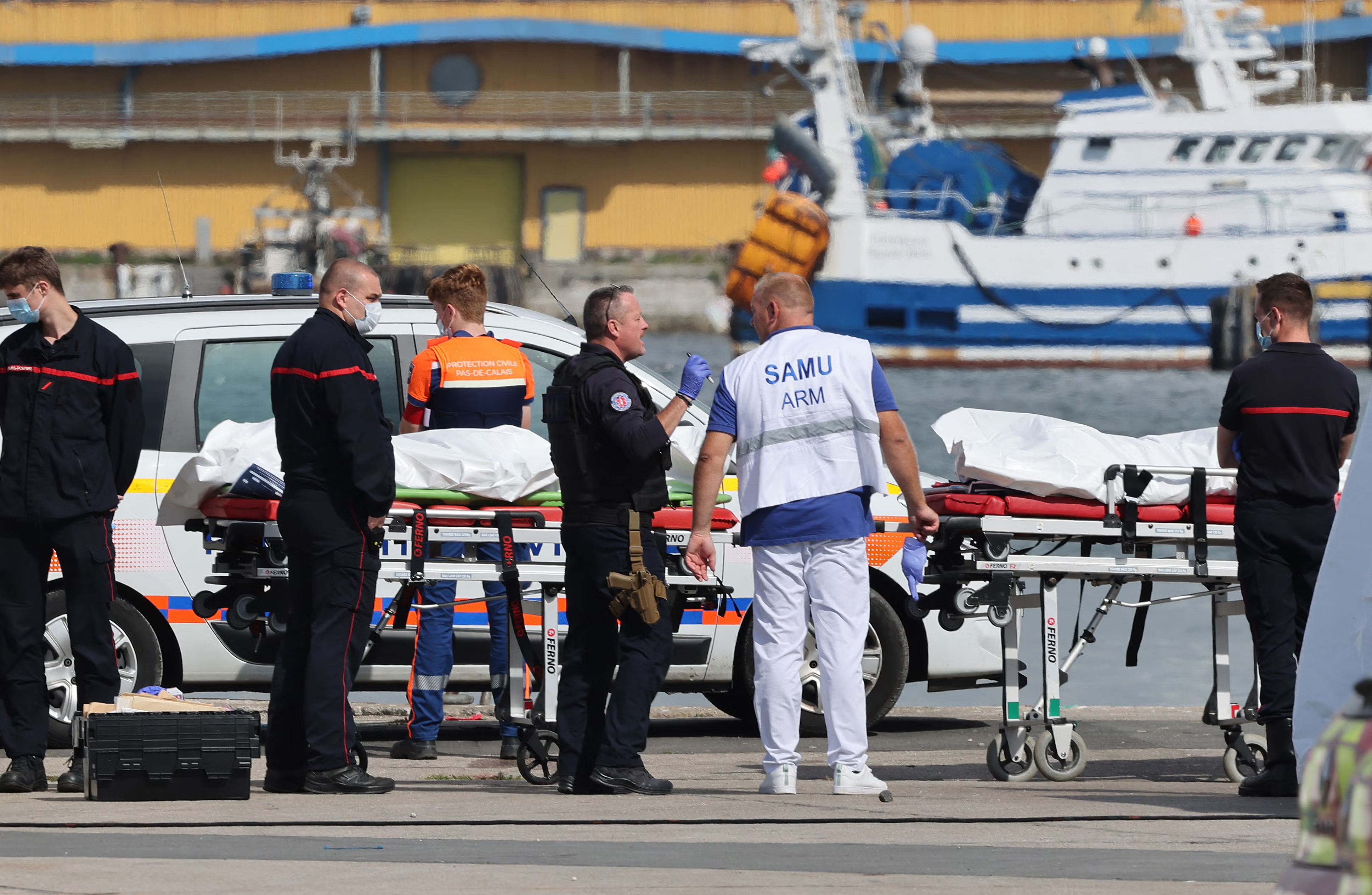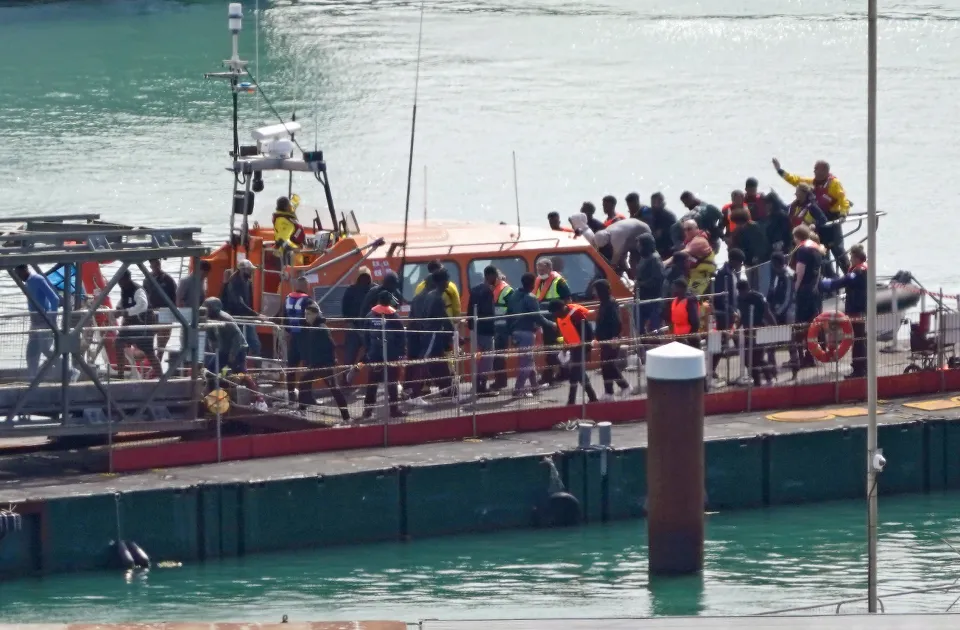A pregnant woman and several children have been identified as among those who died when an overloaded migrant boat capsized in the English Channel near Boulogne-sur-Mer, French officials reported Tuesday.

Interior Minister Gérald Darmanin stated that two more people are missing. The French coast guard rescued over 50 people off the Gris-Nez cape, with two in critical condition.
Frédéric Cuvillier, mayor of Boulogne-sur-Mer, confirmed to the BBC that a pregnant woman was among the deceased. Guirec Le Bras, the city’s prosecutor, said the victims were “primarily of Eritrean origin,” though exact nationalities were still being determined.

Darmanin noted that the boat was overloaded and fewer than eight people had life jackets. He reported that French authorities are preventing 60% of small boat departures, but smugglers are now cramming up to 70 people onto vessels previously used for 30 to 40, leading to deadlier shipwrecks.
This incident marks the deadliest loss of life in the Channel this year, bringing the 2024 death toll to 42. It surpasses the previous highest annual figure of 45 deaths recorded in 2021, according to the UN’s International Organisation for Migration.

UK Home Secretary Yvette Cooper called the incident “horrifying and deeply tragic,” emphasizing the need to dismantle smuggling gangs and strengthen border security.
Steve Smith, CEO of Care4Calais, a migrant aid charity, urged political leaders on both sides of the Channel to address these “avoidable tragedies.”
The number of people crossing the Channel in small boats has risen, with over 135,000 arrivals in the UK since 2018. More than 21,000 have crossed in 2024, surpassing the same period last year but fewer than in 2022, which saw a record 45,755 crossings.

UK Prime Minister Keir Starmer recently canceled the previous government’s plan to send some asylum seekers to Rwanda and vowed to take tougher measures against people-smuggling gangs.
Critics, including Amnesty International UK, argue that the government should focus on providing safe routes for asylum seekers rather than relying solely on enforcement measures.



